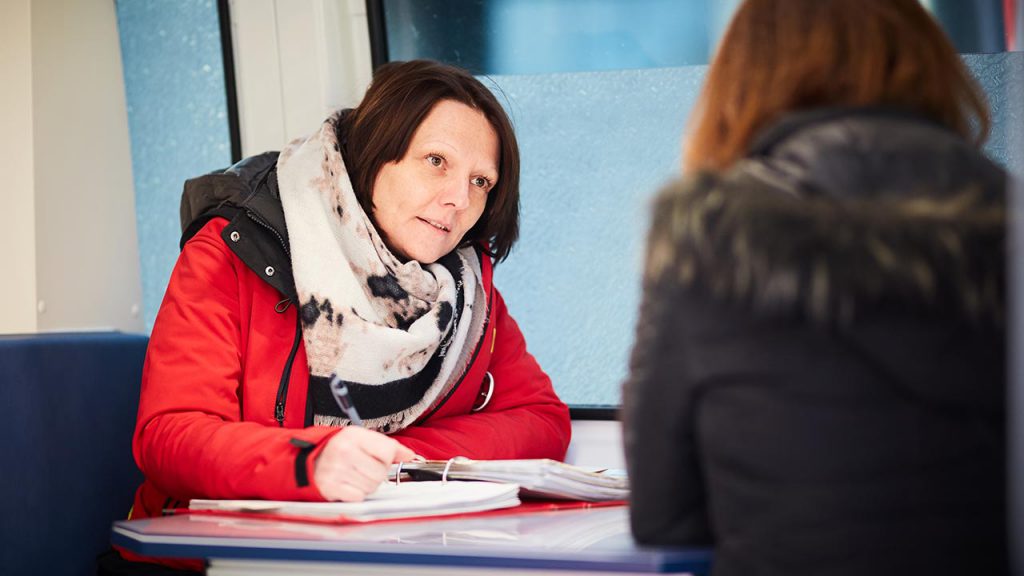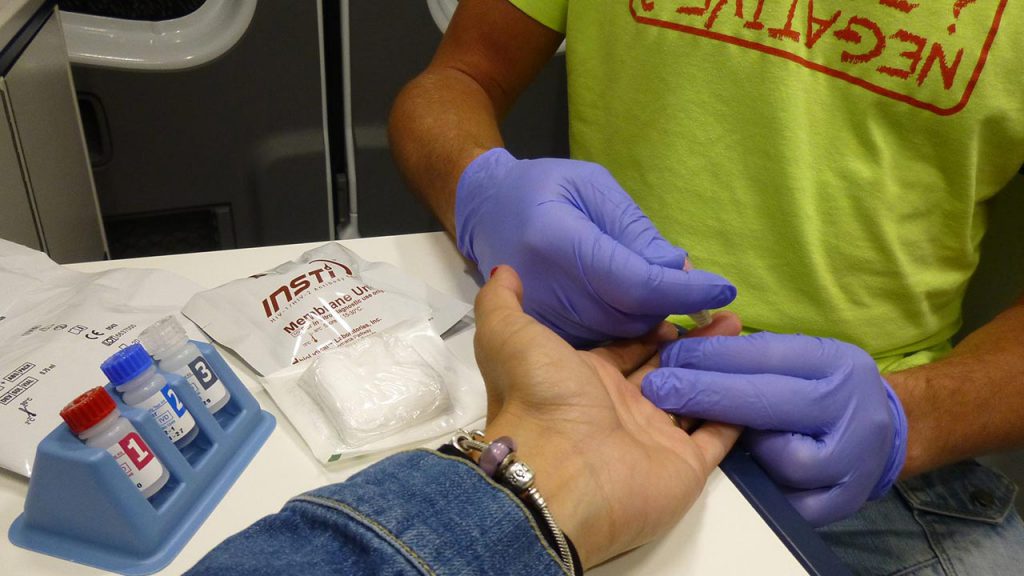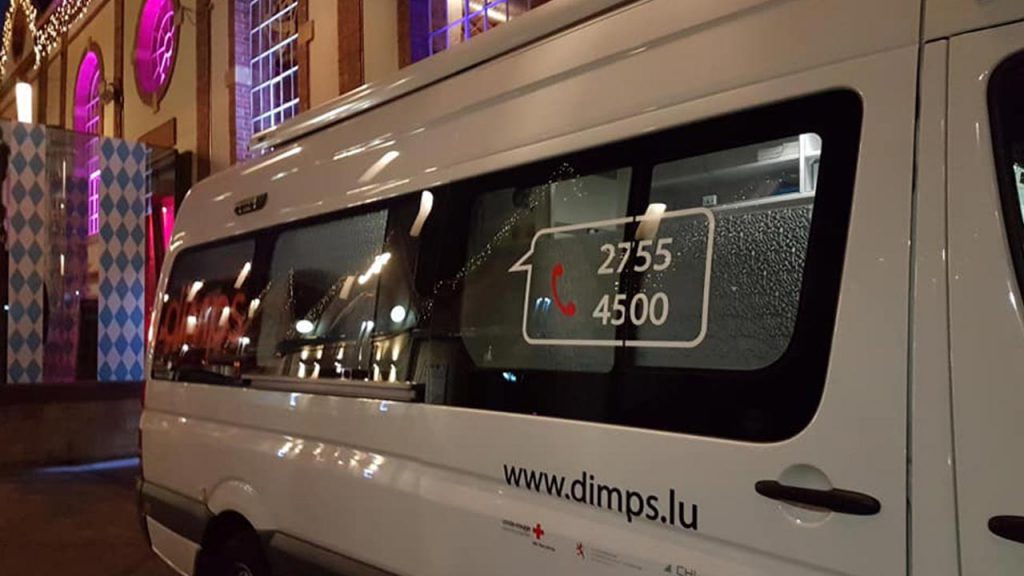
An HIV test is the only way to detect an HIV infection and therefore to provide access to treatment. This test, performed via blood analysis or via a rapid diagnostic test (RDT), detects the presence of anti-HIV antibodies in the blood.
Over the course of a person’s life, there may be several reasons for wanting to be tested:

At the earliest 2 weeks after experiencing a risky situation.
To confirm the absence of infection, you must wait 6 weeks after exposure for a blood test and 12 weeks (3 months) for a rapid diagnostic test (RDT) or a self-test.
While waiting to be tested and to be able to rule out an infection, one should always use a means of prevention (condom) and protect one’s partner(s)!
Rapid diagnostic test (RDT)
The rapid screening test, or rapid-reading test, means that the result is known in a very short time, or even immediately (depending on the test).
To perform a rapid test, a drop of blood is taken from the fingertip and then mixed with a reagent. The result appears a few minutes later.
For the result to confirm that there is no infection, the test must be carried out at least 12 weeks after exposure.
Conventional blood screening test
The screening test by blood analysis is carried out by taking a conventional blood sample. The blood is then analysed in a laboratory.
The result is known 2 to 3 days later.
In order for the result of a blood screening test to confirm the absence of infection, it must be carried out at least 6 weeks after exposure.
1. Pre-test interview with a psychologist Assessment of a risky situation, sexual behaviour or substance use in general
2. Rapid test itself, carried out by a nurse Choice of test (HIV, hepatitis C, syphilis) according to request / exposure
3. Post-test interview Possible advice, reflection on adapting behaviour (safer sex / safer use), referral to appropriate care if necessary.

Free and anonymous Rapid Test:
Free and anonymous test via blood sample, without a prescription:
Locations for screening with a medical prescription (not anonymous):
Laboratoires Réunis, Tel. 78 02 90 1, www.labo.lu